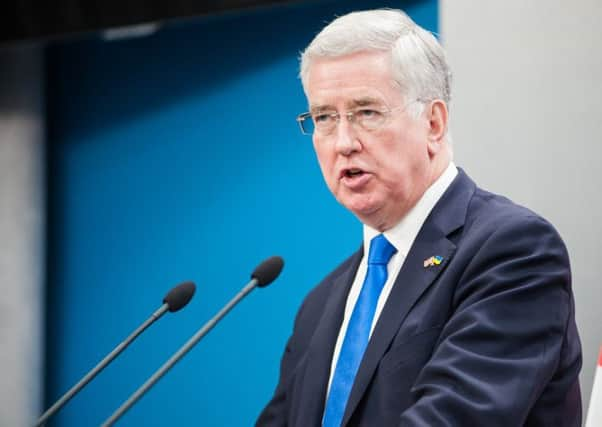ELECTION 2017 - Fact Check: are fewer people switching gas or electricity company?


Michael Fallon, defence secretary and former energy minister, speaking on the BBC Radio 4 Today programme, on April 24
The Conservatives are expected to outline an election pledge to introduce a cap on energy prices in their manifesto. The reason – as outlined by Michael Fallon – is that not enough people are taking advantage of cheaper energy prices from alternative suppliers.
Advertisement
Hide AdAdvertisement
Hide AdThe Conservative Party press office pointed The Conversation to recent government figures to back up their claims about what are known as “sticky customers”. A spokeswoman said: “Whilst we have started to turn around falling numbers of people switching since 2013, approximately 70% of people still don’t switch and the level is below what it has been recently.”
So, how many people are actually switching? The most recent figures from Ofgem, the energy regulator, show that the number of domestic consumers switching their gas or electricity supplier has increased rather than fallen over the last year or so: 30% of domestic consumers switched in 2016, up from around 24% in 2015. The number of people switching from one of the big six energy companies to small suppliers who tend to be new entrants to the energy market increased from a tiny percentage in 2010 to 41% in 2016 for both gas and electricity respectively.
So the picture painted by Fallon is wrong. People are switching – not everyone, but an increasing minority, and they are often moving to new entrant companies.
But what is a high enough level of switching? A 2015 survey of domestic consumers, conducted as part of a lengthy Competition and Markets Authority (CMA) investigation into the energy market, compared the energy sector with other major markets. It found that 27% of consumers changed electricity supplier between 2012 and 2015, compared with 52% who had changed their car insurer. However, only 24% had changed their mobile phone provider, and only 12% had changed their mortgage or current account. So why aren’t the Conservatives also thinking of intervening in the mobile phone market or other markets, where consumer engagement is lower than energy?
Advertisement
Hide AdAdvertisement
Hide AdOfgem published a league table of major suppliers’ energy tariffs allowing consumers to check the sort of savings they might make if they switched. But some people simply don’t want the hassle of switching. Others may not be driven by price in relation to their energy bills – for example, they may prioritise buying renewable electricity rather than the cheapest electricity. More information is unlikely to have much of an impact on these consumers.
Capping energy prices on some or all of the available tariffs would tend to level the playing field between different energy suppliers, so reducing price differentials and therefore any incentive to switch. In other words, the two policy measures would not seem to fit together and a cap on energy prices could actually see a drop in switching.
Verdict
Fallon’s claim that people aren’t switching enough is wrong on the basis of the most up-to-date figures. Energy markets aren’t perfect, but intervening to cap energy prices and encourage switching are like rearranging the deckchairs on the Titanic.
Competition may help make energy more affordable, but relentlessly driving down prices is not the way to encourage investment in new energy capacity or the development of more sustainable ways of producing and using energy. The focus on energy caps and switching is too narrow and too short term to contribute to the development of a sustainable energy system.
Review
Advertisement
Hide AdAdvertisement
Hide AdMichael Waterson, professor of industrial economics, University of Warwick.
There is much here to agree with. More people are indeed switching energy supplier, and small and medium-sized suppliers are finally making an impact. Capping energy prices is not a good way to encourage switching. However, it is clear that many people are not engaged with this market and, at the same time, spend considerable amounts on energy, making it a political issue. But politicians’ headline-seeking “solutions” are unlikely to create workable outcomes. Really we need to understand more how to encourage consumers’ active search in products where the link between what you pay and the services you get for that payment is opaque.
This article originally appeared in The Conversation